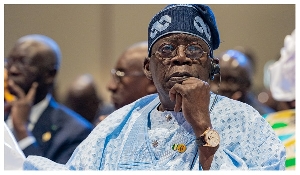Opinions of Wednesday, 8 March 2017
Columnist: Salifu, Steve Kubate
Marwako’s PR nightmare: why they got it all wrong!
By: Salifu, Steve Kubate
Somewhere in 2012, then as a Public Relations intern with Infocus PR Consultancy. One of the earliest lessons I learnt was that in periods of crisis it is better to be seen as the victim rather than the villain.
A very short statement yet profound. It invariably underscore the posture that companies should take in periods of crisis and how their Crisis response or Communications Strategy works to their advantage or otherwise.
When news of the Marwako debacle broke, I was inundated with calls on the need to join the boycott Marwako movement on social media. Interestingly, I had friends who questioned why I refused to use my social media timelines to join the campaign. They unfortunately do not understand how we in the PR industry work.
Indeed, it is not and will never be in our interest to join the bandwagon in seeing the downfall of any organization nor be the frontiers of such campaigns when we also manage Public Relations for our brands. This is not to say that the issues raised are not genuine but I am looking at the PR perspective of it. Every organization I must say is susceptible to crisis and every PR professional knows this.
The Marwako debacle I must say is very unique. Indeed, it is one that requires a specialized understanding of not only the communications pitfalls and opportunities, but also the complex operational nuances that are inherent in the hospitality industry.
I recall telling my good friend Benjamin Alpha that I am watching keenly to Marwako’s response strategy before I comment extensively on the matter when he aptly analyzed the incident and its emerging backlash. That was on 4th March, 2017.
The following day March 5th 2017, Management of the restaurant eventually released a statement where they among other things suspended Jihad Chaaban, the supervisor at the center of the incident. That to me was indicative of management’s resolve to reduce the impact this crisis may have on their brand.
Good as this move may be, it fell short of giving a firm commitment from management in seeing to the resolution of the matter. One of the immediate steps would have been to fire the supervisor (Not suspend) and completely disassociate the brand from the supervisor by refocusing on the brand and what their brand really means to the consumer and the general public. The failure of management to clearly separate the brand Marwako from the person Jihad Chaaban is partly a reason why most Ghanaians totally rejected management’s explanation.
Secondly, Marwako’s response was slow. In the world of PR, timing is very critical. The incident happened on Sunday February 26, 2017, the victim reported the matter to the police on February 28, 2017 and management publicly responded to the issue on March 5th, 2017.
Management of Marwako failed to appreciate the staggering reality that restaurants are susceptible to a PR crisis due to the volume of traffic and consumer-facing nature of these hospitality brands. I am tempted to believe that management was actually trying to adopt the traditional PR model of ignoring the incident and hopes it disappears into thin air.
That I must say will not happen with today’s consumer. They have proven to be more active especially with the emergence of social media. Marwako failed to monitor social conversations and media mentions of the incident. Responding swiftly (not reactionary) to the issue would have been more appropriate in this case.
Also, management failed to equip their front line staff. I was totally shocked to hear the Kitchen supervisor of the Abelenkpe branch defend Jihad Chaaban on City FM hours after management of the restaurant issued a press statement. This in my opinion makes the matter murkier and has the potential to worsen their already bad ratings.
This was needless! Organizations must understand that every level staff could be a media resource because my colleagues in the Journalism profession will not stop been nosy. They would always want a different angle to the story.
Organizations must not just equip their senior management with prepared statements and talking points. Every front-line employee like waiters, line managers among others should be educated a lot on the crisis response protocol. That is critical, otherwise you will have employees giving different perspective to the issue and further worsen your plight.
RECOMMENDATIONS
The Marwako debacle I must say is not a hopeless case. In fact PR Professionals will tell you that NO PUBLICITY IS BAD PUBLICITY and that has proven to be true in many instances.
1. They should set up a crisis management team- the committee which will be led from the top will have access to all sections of the company and will centralize all sources of information. During crisis this group will provide actionable feedback to senior management.
2. Set up a communications outfit or outsource the management of communications to an external PR- I noticed they don’t have a PR outfit. They can immediately set up a PR outfit or outsource the management of Public Relations to an outside PR Agency which will be tasked with the responsibility of drawing up a robust Communications Strategy which includes a Crisis Management plan.
3. They should reshape the narrative by reinforcing their brand messages.
4.They should also set up a social media monitoring strategy to monitor and quell the boycott Marwako campaign since these platforms has suddenly become avenues for people to express their discontent.
5. They should develop an internal communications strategy that does not neglect their internal stakeholders.
These recommendations are not exhaustive. There are so many ways of handling the issue depending on the angle the PR Professional want to look at the crisis.
Salifu, Steve Kubate
Advertising and Media Relations Manager at B Branding Solutions, a Brands and Digital Marketing Consultancy.














